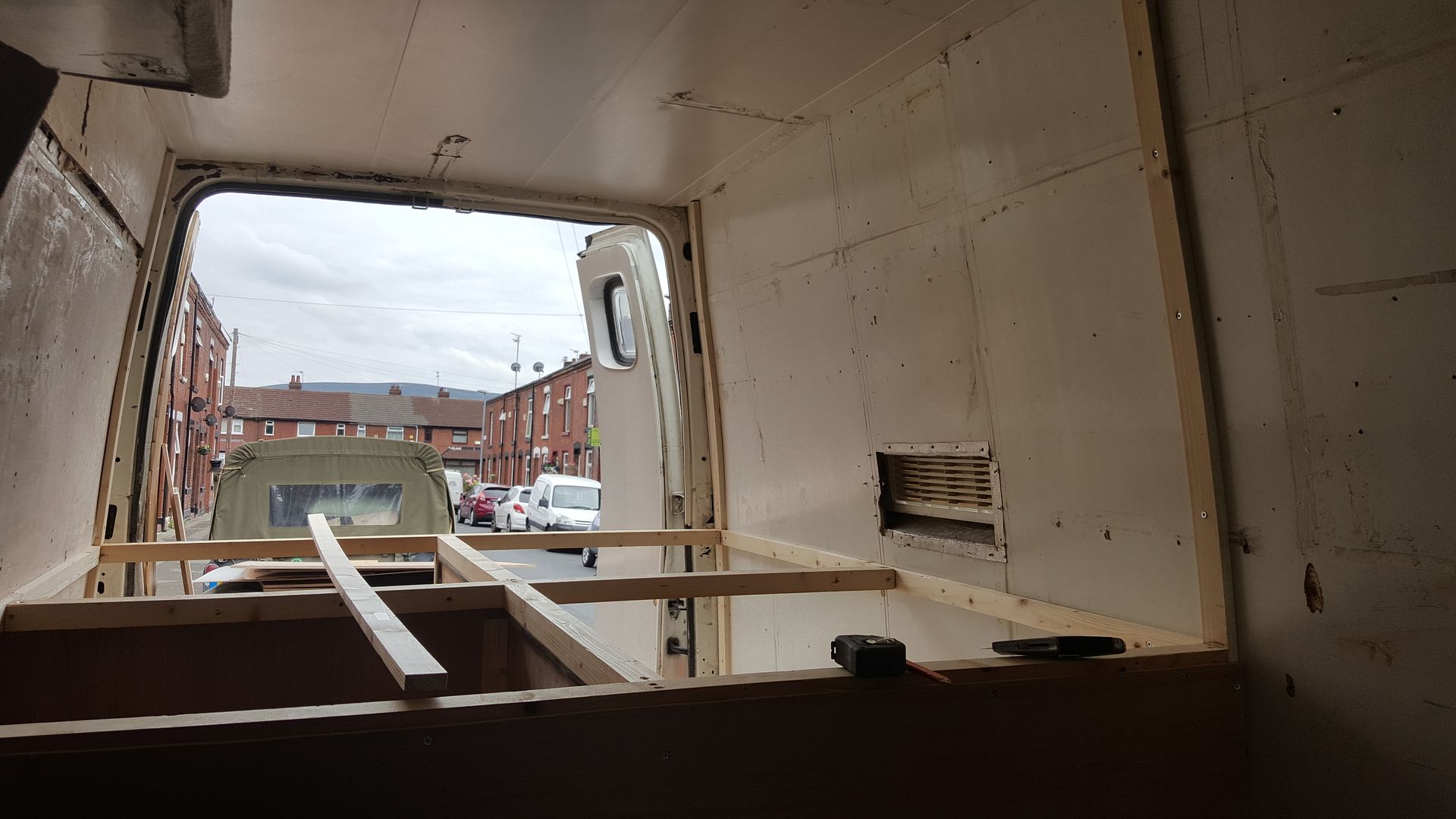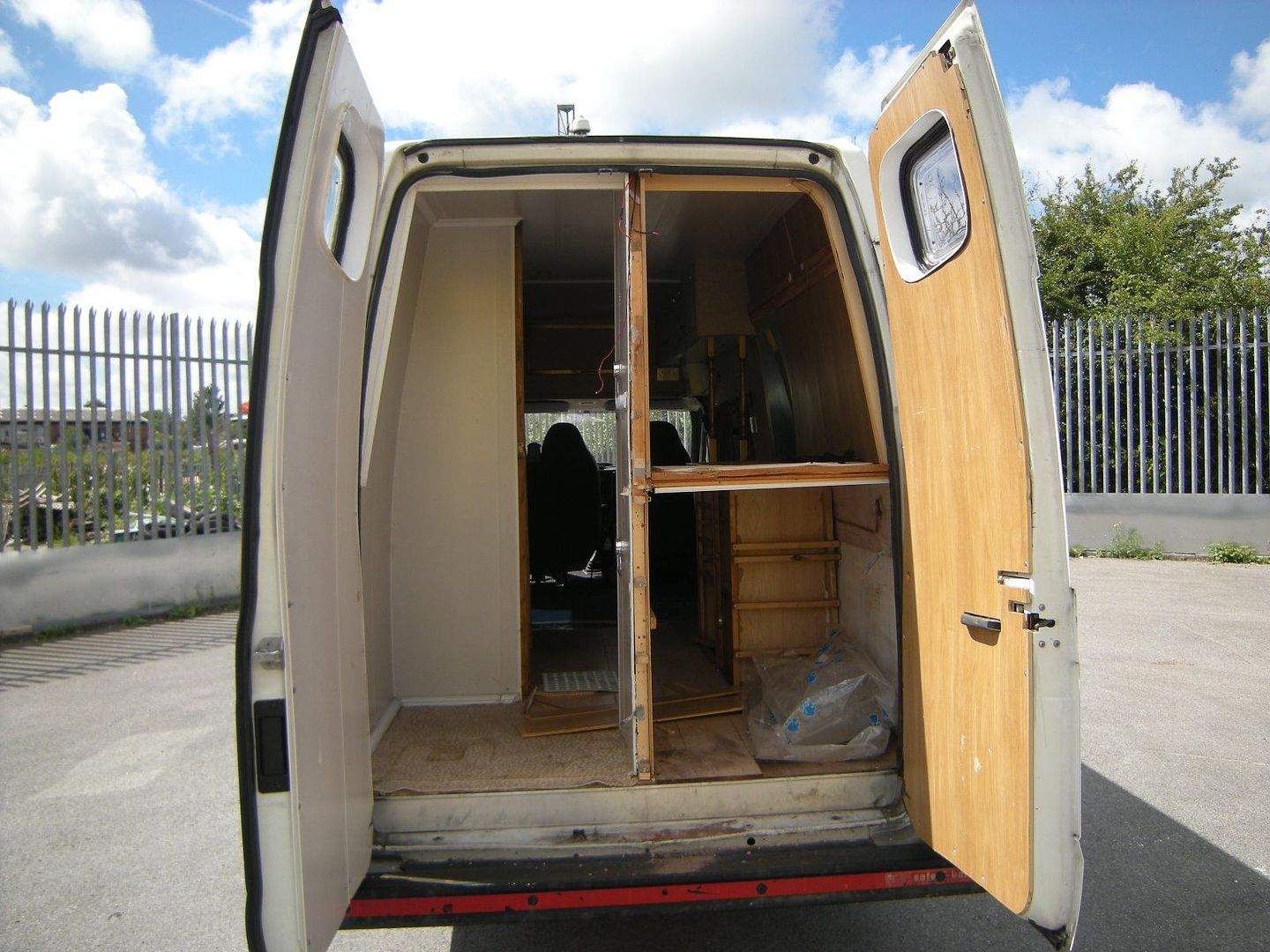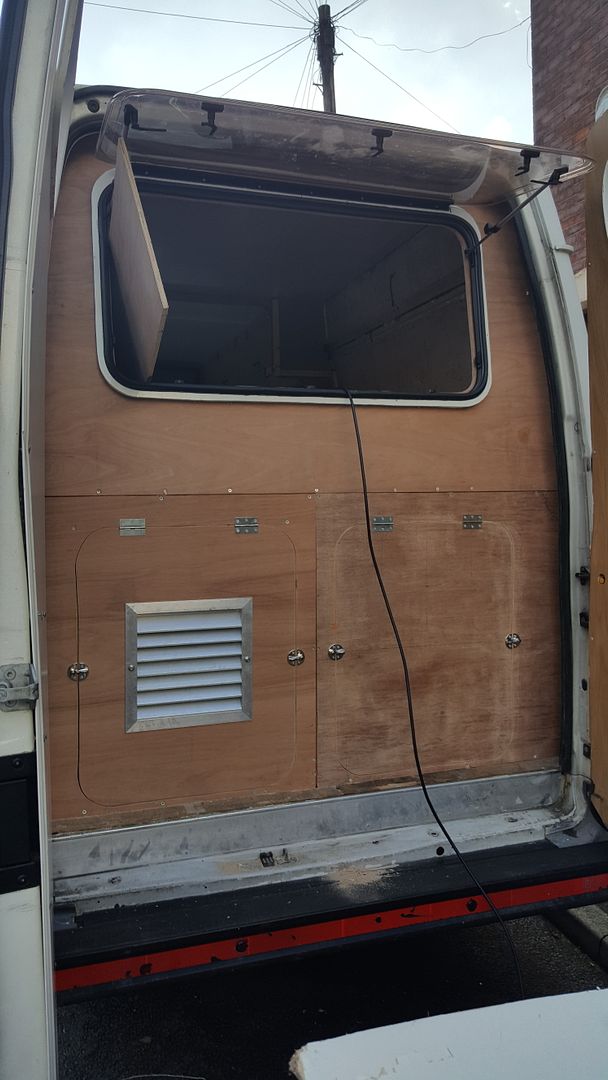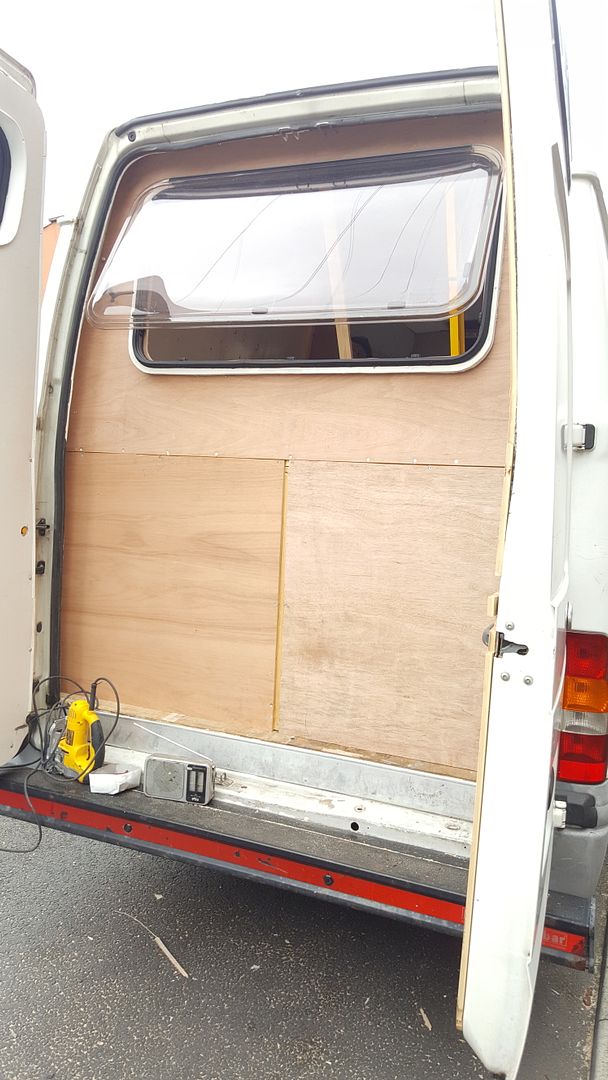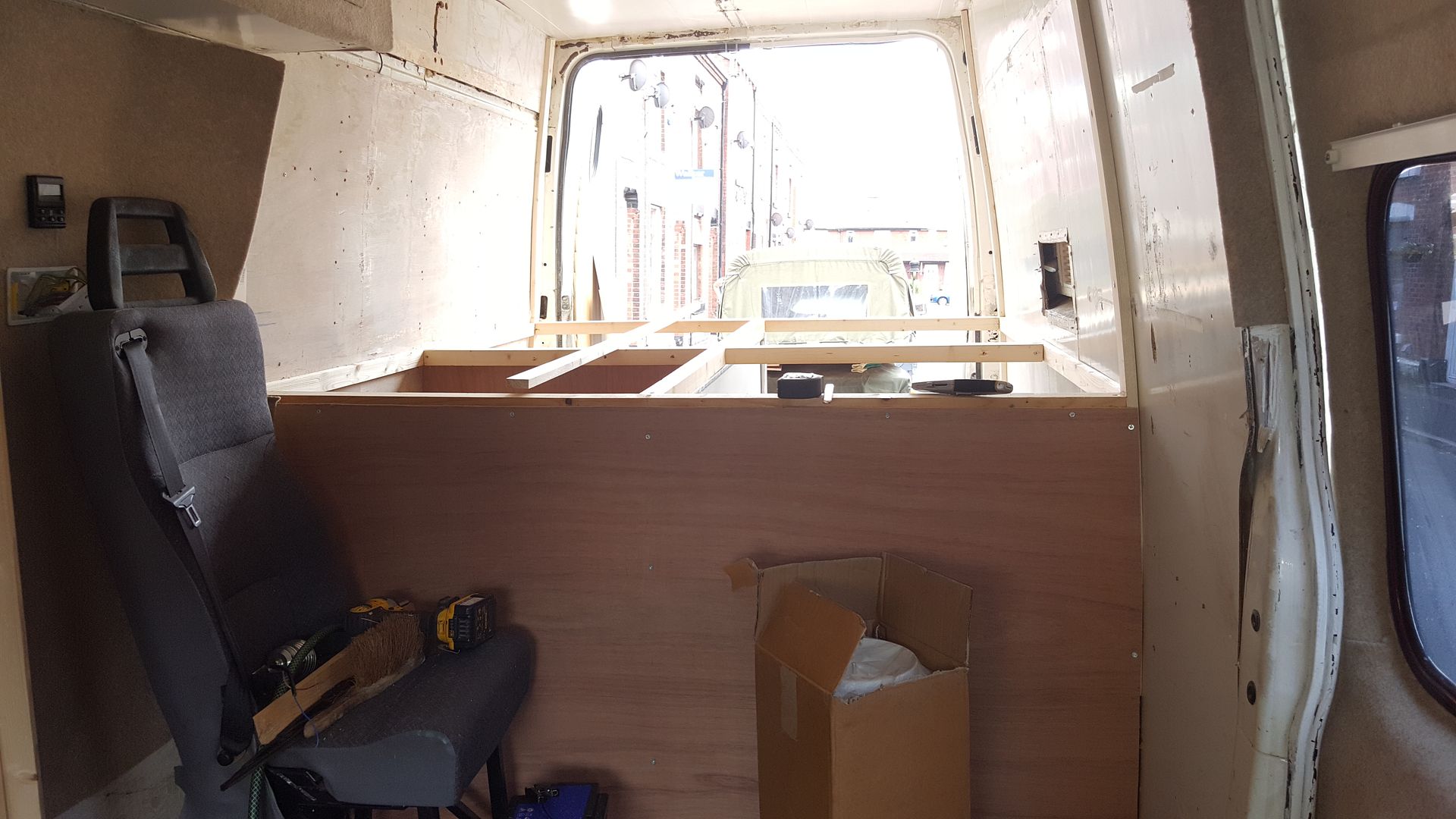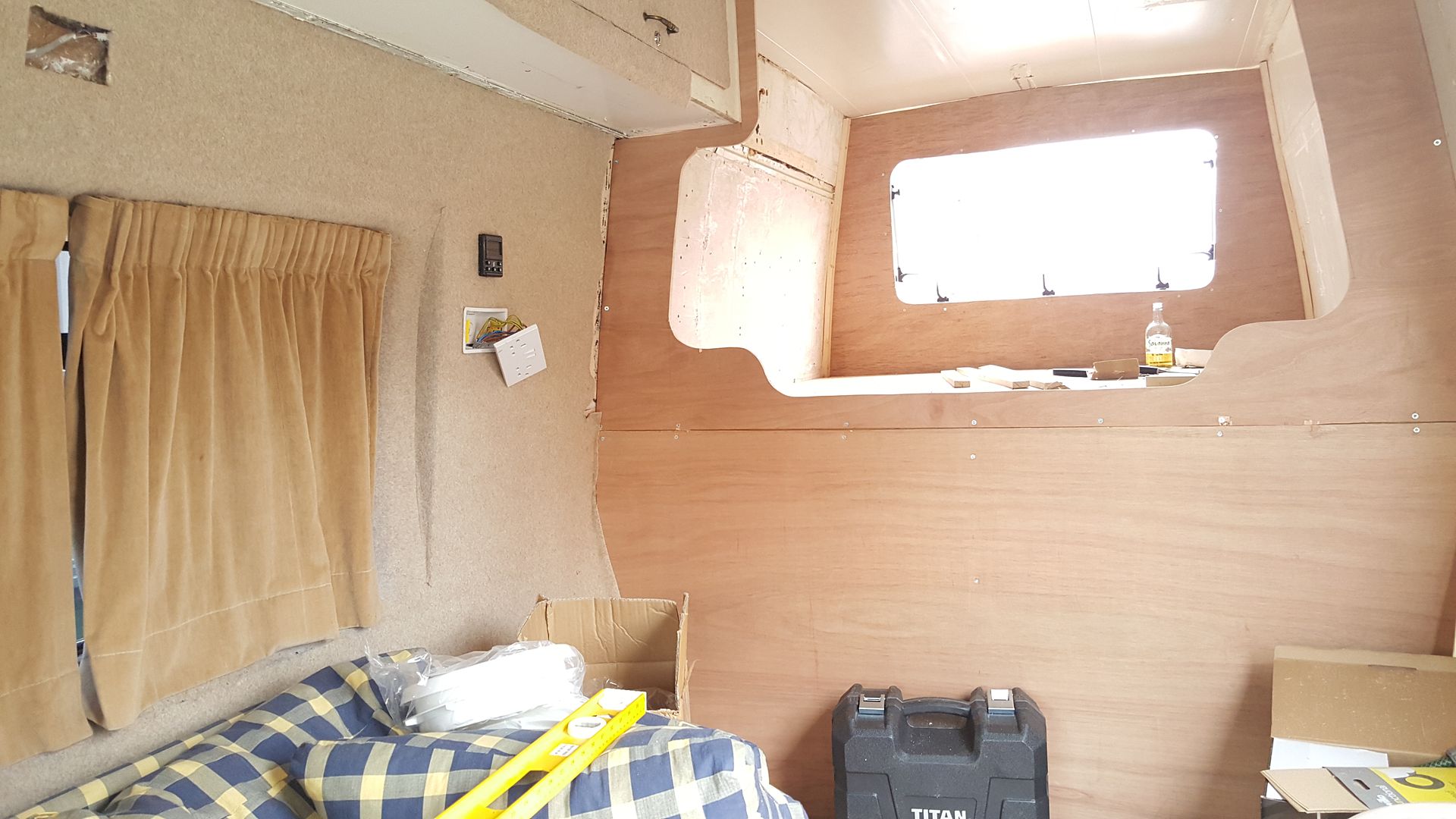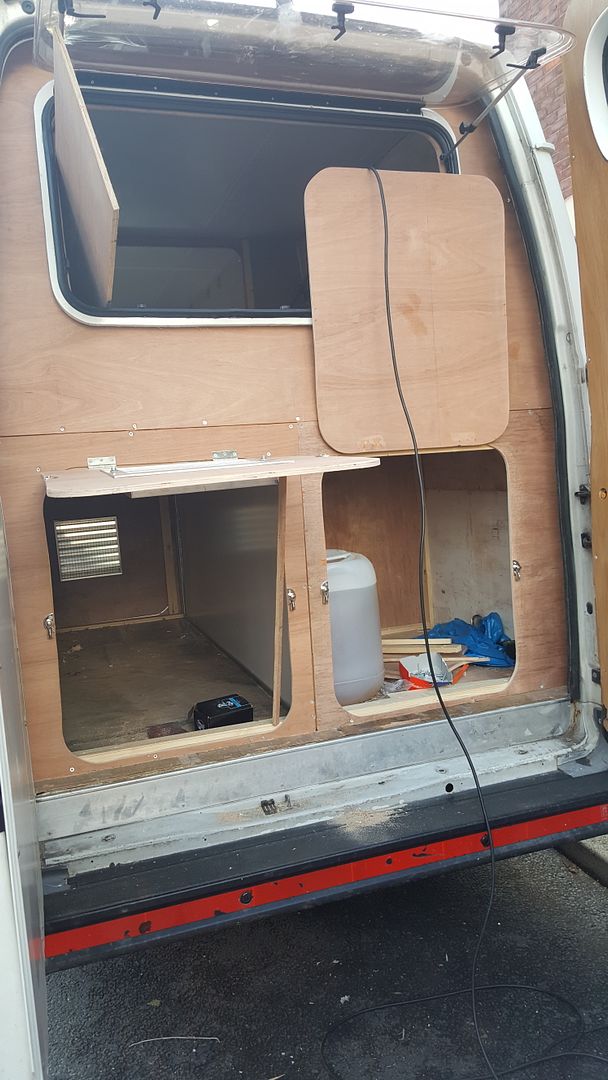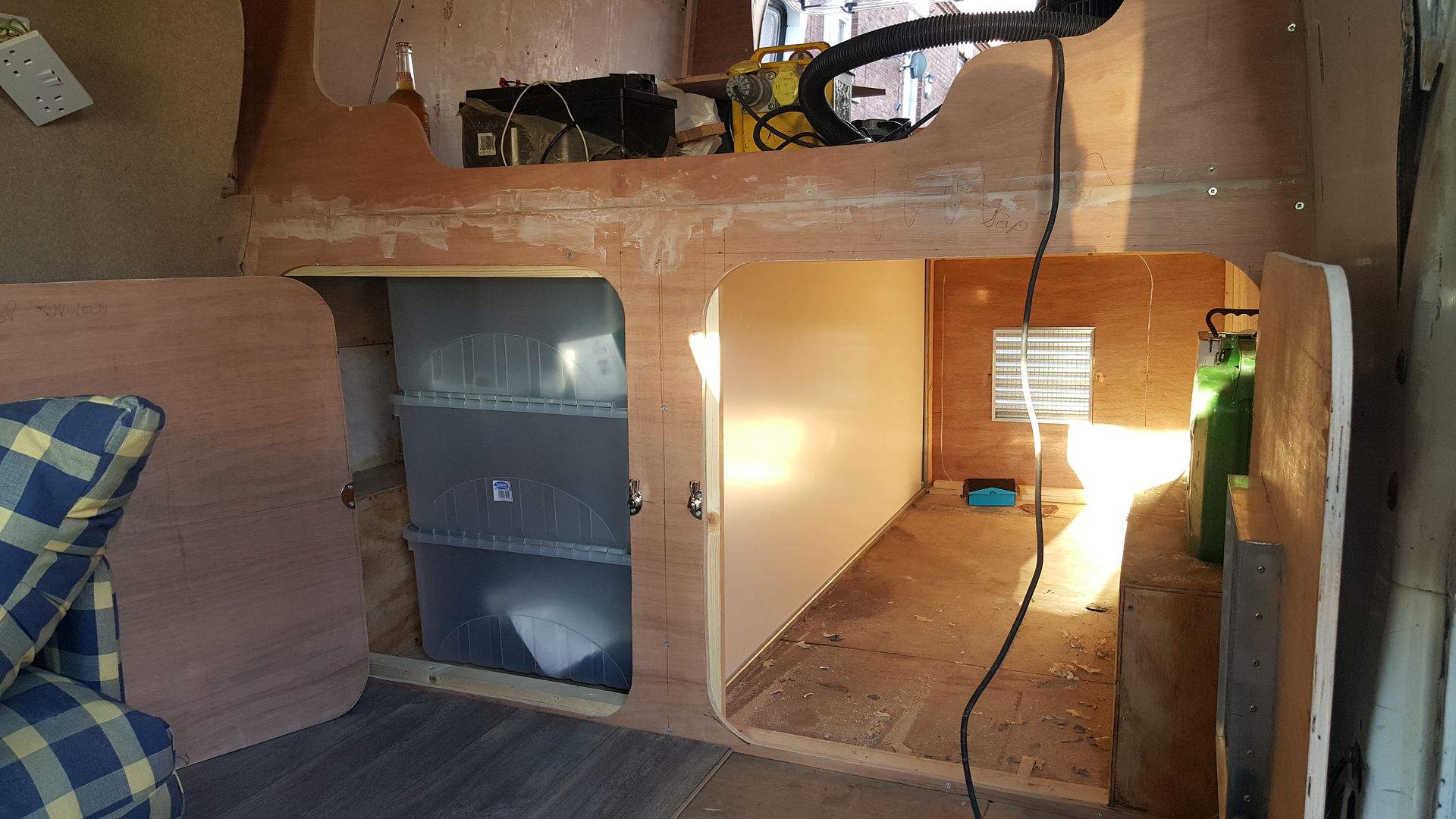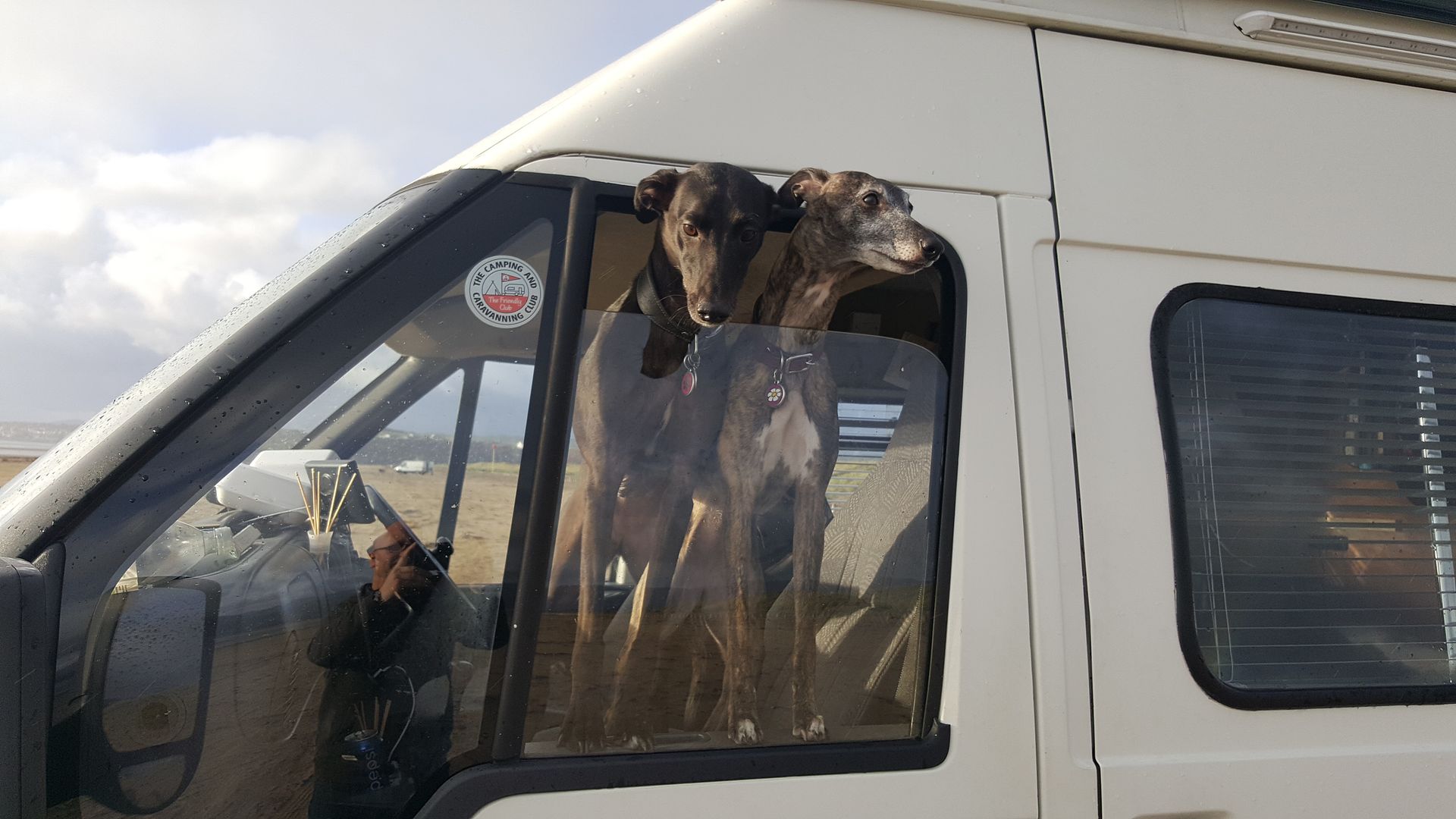transitcat
Hi guys, I need to buy a van to start converting very soon if I'm to keep to my timetable but I'm still having difficulty choosing whether to go swb, mwb or lwb.
The original plan was to get the shortest van I could find with standing height, with the idea that the smaller van would be a lot less stressful to drive and park and I would use it more as a result. But it seems you have to pay a premium of about £1000 for a swb van (less than 5metres) with a high roof over say a lwb (5.5+ metres) with similar miles and condition.
In terms of interior space I am really not too bothered because it's just me in it and as long as I can stand up I shouldn't feel too cramped.
If anyone has any random thoughts or opinions on this I'd be grateful to hear them. I am rubbish at making final decisions about things!
The original plan was to get the shortest van I could find with standing height, with the idea that the smaller van would be a lot less stressful to drive and park and I would use it more as a result. But it seems you have to pay a premium of about £1000 for a swb van (less than 5metres) with a high roof over say a lwb (5.5+ metres) with similar miles and condition.
In terms of interior space I am really not too bothered because it's just me in it and as long as I can stand up I shouldn't feel too cramped.
If anyone has any random thoughts or opinions on this I'd be grateful to hear them. I am rubbish at making final decisions about things!

